ST-1.5 Bikes and Walkways
-
 Kaohsiung Urban Transit Network
Kaohsiung Urban Transit Network(Chinese Taipei) According to Kaohsiung City‘s current CO2 emissions portfolio, the transport sector ranks third in total emissions (6.2 percent). The city, however, has the highest per capita emissions (22.3 tons/per capital/year) in the state. In order
-
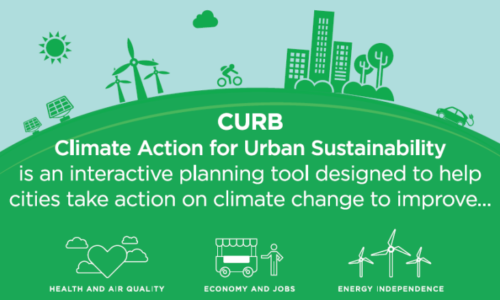 CURB: Climate Action for Urban Sustainability
CURB: Climate Action for Urban SustainabilityDuring Climate Week NYC in September 2016, the World Bank, together with C40 Cities, the Compact of Mayors, and other partners, launched a new planning tool called “CURB: Climate Action for Urban Sustainability,” which can help address some of these issue
-
 Clean Energy Solutions Center
Clean Energy Solutions Center“The Clean Energy Solutions Center helps governments design and adopt policies and programs that support the deployment of clean energy technologies.
-
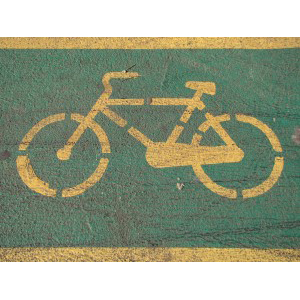 City of Sydney Cycleways Network
City of Sydney Cycleways NetworkThe City of Sydney is building a 200km cycle network across the entire City area. The network is designed to improve connections between employment, recreation and residential destinations to make cycling an attractive and safe transport choice.
-
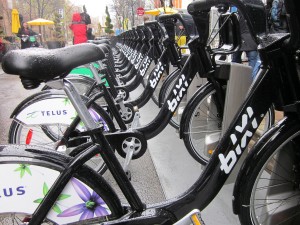 BIXI Bike Sharing in Toronto
BIXI Bike Sharing in TorontoIn the first year after its launch in May 2011, BIXI achieved its goal of 5,000 members and surpassed 48,000 casual riders. Torontonians had taken more than 556,000 BIXI bike trips around the downtown core, with an average bike trip of 25 minutes and 5 KM
-
 BIXI Bike Sharing in Montreal
BIXI Bike Sharing in MontrealCanada: BIXI makes use of computer-chip based, solar-powered, WiFi-enabled base stations. Because the stations are entirely wireless, they can be easily moved, or packed up for the winter season (when BIXI’s service is not available).
-
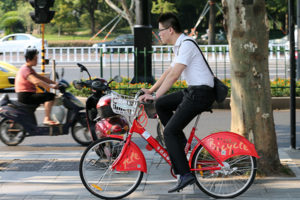 Hangzhou Public Bicycle
Hangzhou Public BicycleChina: The bike share system in Hangzhou was designed, built, and funded by the local government in order to cover the last kilometer from the public transportation stop to the customer’s destination or vice-versa. Strong local government involvement
-
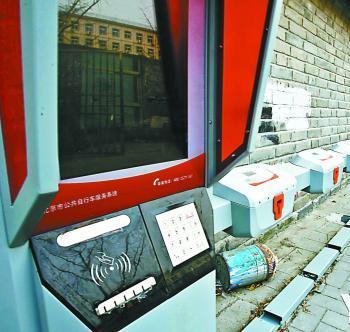 Beijing Bike Sharing Project
Beijing Bike Sharing ProjectBeijing is set to roll out its second-ever municipal bike-sharing service. Beijing bike sharing stations have been installed in the Dongcheng and Chaoyang Districts of Central Beijing. Unlike the terminated private company bike-share system established in
-
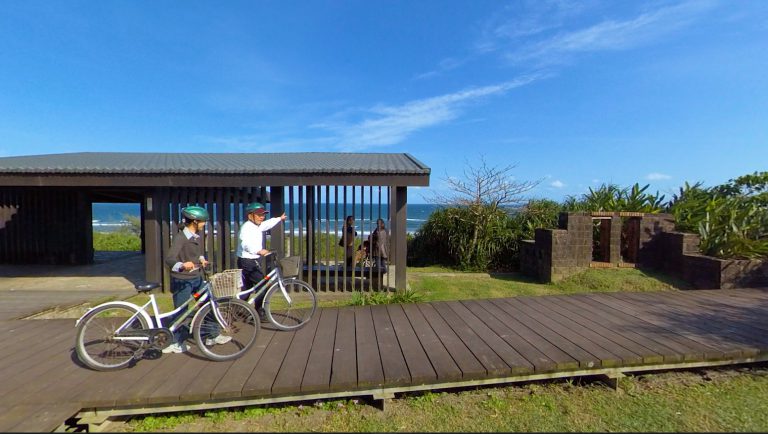 Smart and Sustainable Global Cycling Marketing Program in Chinese Taipei
Smart and Sustainable Global Cycling Marketing Program in Chinese TaipeiChinese Taipei is known as the “Bicycle Kingdom” and its leading bicycle brands are well-known around the world. With the Ministry of Transportation and Communications (MOTC) integrating ministry and agency resources and working with local governments...
-
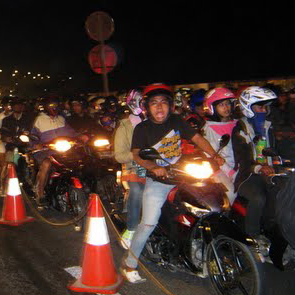 Bicycle Network in Surabaya
Bicycle Network in SurabayaIndonesia: By international standards, Surabaya has an extremely high mode share of private motorized trips (predominantly motorcycle) relative to per capita incomes, despite the fact that average trip distances “as the crow flies” are extremely short.
-
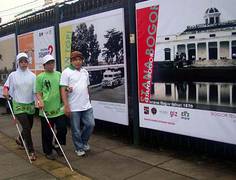 Bogor City Walkability Campaign
Bogor City Walkability CampaignIndonesia: Bogor, known as one of the most traffic-congested cities in Indonesia, put ecomobile transportation as its number one low emission development priority.
-
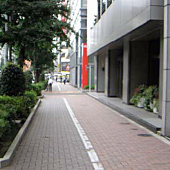 Safe Bicycle Riding Promotion Plan in Tokyo
Safe Bicycle Riding Promotion Plan in TokyoJapan: The Tokyo Metropolitan Region has a population of 12.8 million and the number of bicycles owned is 8.4 million, which equates to 1 out of 1.5 persons owning a bicycle. Those bicycles are used for various purposes including shopping, commuting, work